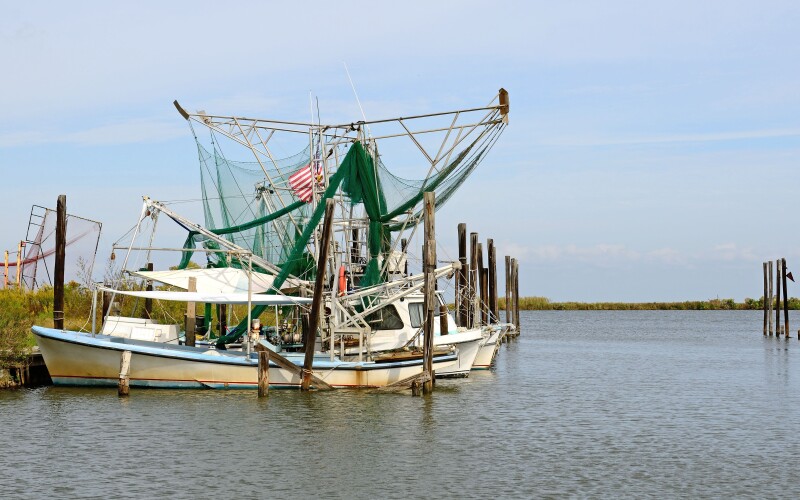The Southern Shrimp Alliance asked the U.S. Department of Homeland Security this week to add eight seafood processors in China to a list of companies blocked from importing to the U.S. because of their use of forced labor.
In a Jan. 29 letter the SSA points to evidence that red shrimp caught off Argentina is shipped to China, and processed in plants in Shandong province where members of China’s ethnic Uyghur work under forced labor conditions.
The shrimp alliance in particular cites reporting on Uyghur labor by the Outlaw Ocean Project, a nonprofit investigative journalism group founded by maritime reporter Ian Urbina.
“The Outlaw Ocean Project recently documented that members of the Uyghur minority were forcibly moved out of the Xinjiang Uyghur Autonomous Region (XUAR) to Shandong and coerced to work in seafood processing facilities, including shrimp,” according to a statement from the SSA.
“Americans purchasing Argentinian shrimp unknowingly contribute to Uyghur oppression, as they have no way of knowing whether it was packed in plants in Shandong under current labeling laws,” the group said Monday, when it petitioned the Department of Homeland Security’s Forced Labor Enforcement Task Force (FLETF) to add eight Chinese seafood processing plants in Shandong to the “entity list” maintained under the Congressional Uyghur Forced Labor Protection Act.
“The South America to China to United States pipeline has become an entrenched part of the U.S. shrimp market,” wrote John Williams, the SSA executive director, in the group’s letter to DHS officials.
“For these reasons, the Southern Shrimp Alliance, its members, and the American commercial shrimp industry at large are deeply disturbed by the extensive reporting regarding the exploitation of Uyghurs in the seafood processing industry in Shandong province. Even from the limited information available to the public, it is clear that at least some of the South American shrimp entering the United States market goes through Shandong.”
Seafood import data shows that over the past year, “China exported at least 12 million pounds of Argentinian shrimp to the United States. Argentinian fishermen caught this shrimp in the Atlantic Ocean, which was then shipped across the Pacific to Chinese processing plants. After processing, it was shipped back across the Pacific, ending up in American grocery stores. Despite being processed in China, this product is allowed to be sold in the U.S. as a product of Argentina,” according to the SSA.
In addition, the Southern Shrimp Alliance also petitioned the federal forced labor task force to recognize formally seafood as a priority sector for enforcement.
“This designation would help to ensure that the UFLPA safeguards extend to other seafood processing plants in China that are exploiting Uyghur labor, whether in Shandong province or elsewhere,” the group says.
The SSA petition comes as the domestic U.S. shrimp industry faces extreme pressure from low prices and competition from cheap foreign imports. U.S. fishermen and their political allies in Gulf of Mexico states have even called for the U.S. Department of Commerce to declare the situation a fishery disaster.
“Our shrimp industry is facing a huge number of challenges right now, and commercial fishing families across the southern coast are suffering,” said Williams. “While our boats are tied up, seafood importers are scouring the globe to find the most vulnerable populations to make a buck off of. This is morally wrong, and it is against the law. We ask for nothing more than the enforcement of our laws.”







